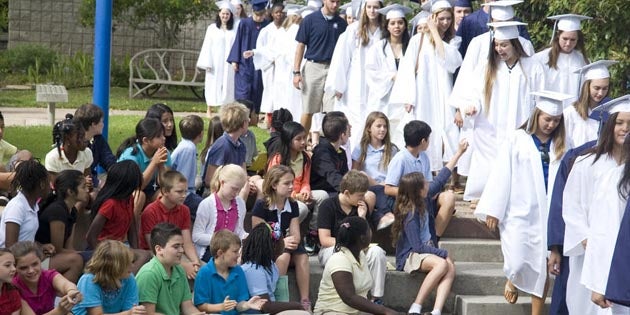The College of Charleston Riley Center for Livable Communities is helping to change the mindset in South Carolina about going to college. As part of the project, known as Know2, some of the nation’s experts in mindset growth projects and creating an environment of college success will be in Charleston on July 30-31, 2014 for the Know2 Conference.
The Know2 program, developed by the S.C. Higher Education Foundation, is designed to ensure all citizens know two things: being educated is essential for economic success and an improved quality of life; and being educated is possible for me, my family, and my community. Projects have already been implemented in Cherokee, Marlboro and Beaufort Counties.
RELATED: Learn more about what Cherokee County is doing.
The College of Charleston Riley Center is a research institute committed to improving communities, so assisting with the Know2 program is a natural fit.
RELATED: Read why the Riley Center was named for Mayor Joseph P. Riley, Jr.
Riley Center researchers are conducting foundational research in S.C. communities before the program is launched, and then periodically measuring the success of each program.
“This is very new educational approach in the U.S., not just in S.C.,” explains Kendra Stewart, director of the Riley Center. “Research shows the best performing countries in the world have a surrounding culture that values education and believes that it’s effort, not natural ability, that creates success. People in countries like Korea, Finland, and Poland have a positive mindset about their ability to succeed and so they do. I’m excited about showing what Know2 has done so far and getting expert input on extending the program.”
Craig Garner, president of the South Carolina Higher Education Foundation which sponsors Know2 adds, “We have many strong schools and a lot of programs to help with education. Know2 isn’t competing with those. Instead, we’re helping them by ensuring young people come to school believing education is important and feeling confident they can learn.”
Stewart agrees, “A confident mindset is key. If young people are skeptical they can learn—and research shows many are—they are much more likely to do poorly and then to drop out.”
Part of the conference will focus on how volunteers–called neighborhood ambassadors—can help families understand what it takes for young people to be excited about learning and for adults to have the confidence to return for GEDs and then for certificates or degrees.
All Know2 pilots have emphasized early childhood and have benefitted from research conducted by the Riley Center on how parents can give their children a positive mindset about education.
Creating a surrounding culture that builds confidence about educational success in all parts of the community will take time, but Garner notes that there’s already been a great achievement.
“Just a few years ago leaders in these communities were skeptical that they could ever achieve the education levels needed to attract good jobs and raise the quality of life. Now, they are convinced this is possible and have established aggressive educational attainment goals for 2020. We’re on our way.”





